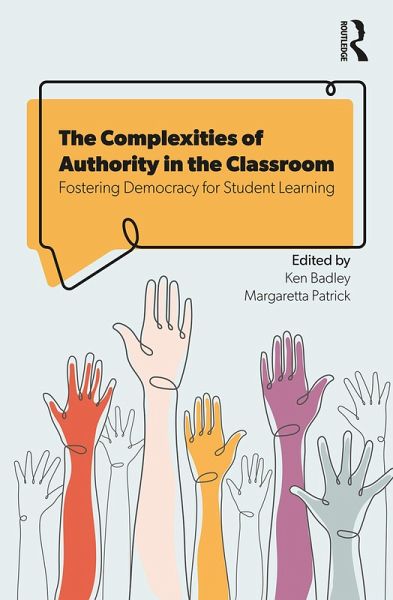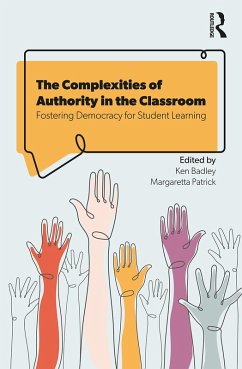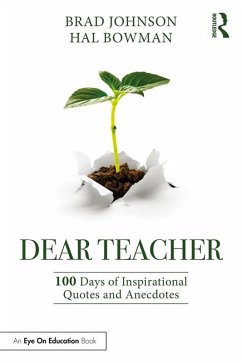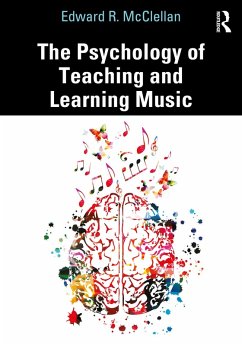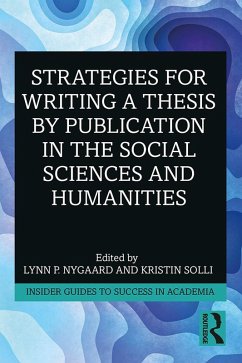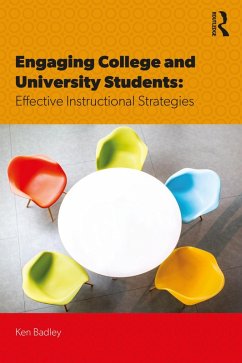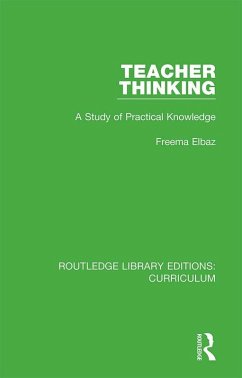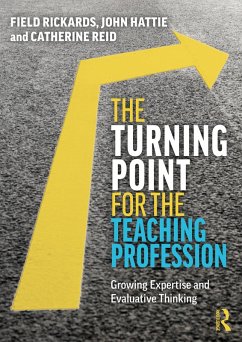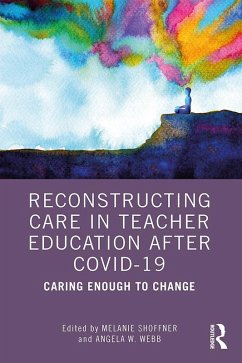The Complexities of Authority in the Classroom shifts the questions of classroom climate away from classroom management and behaviour control toward a much more holistic and integral understanding of how human beings learn and how that learning is best facilitated. The term authority is reclaimed for teachers as something that is earned, modelled, embodied, and integral and that operates in the space created by the relationships between people. Education for too long has focused on the top-down transmission and assessment of content knowledge: this book is a refreshingly simple, yet profound re-balancing of this equation to an inside-out model that privileges authenticity, listening, relationships, engaging curricula and
student self-leadership. Written by practitioners, this volume offers needed insights into how effective classrooms work and how the students in those classrooms can engage more meaningfully in their own learning narratives.
- Ruth Crick, Founder and Director, WILD Learning Sciences, Professor of Learning Analytics and Educational Leadership, University of Technology, Sydney, Australia
Authority is far too often framed as 'discipline.' This exciting and interesting book helps teachers and teacher educators take other perspectives. A range of high quality chapters give insight into theoretical and practical issues related to the core business of teaching, namely cultivating relational spaces in which pupils can learn to take their own responsibility. The authors unravel the complicated job of teachers of both authorizing themselves to teach and authorizing students to learn. This book will undoubtedly be of great value for teacher-training and for post-initial training. I recommend it to all teachers who are searching for new insights and practical tools for their everyday job.
-Bram de Muynck, Professor of education at Driestar Christian University Gouda, the Netherlands.
Badley and Patrick have curated a collection of stories, theories, and research notes that is both brilliant and authentic. The central ideas of being authorized to teach by self and others, and the consent to learn, are concepts that all educators confront yet too often fail to articulate and thoughtfully address with their practice. Teaching is done with, rather than done to. An exchange occurs between teacher and learner that transforms classrooms into places of learning. It is magical and yet it can be analyzed. The authors in this text contribute to that analysis adeptly and address a wide variety of aspects and contexts, such as substitute teaching, early career teaching, special needs teaching, cross cultural teaching, and the list goes on. Addressing issues of true authorization and honest consent, every chapter hits the nails on the heads. As Badley notes, teaching requires guts, which in turn calls for courage and hope. The consent only learners can grant to their teachers constitutes the difference between trying and truly teaching. Every university teacher preparation program owes this book to their students as part of a required text list. Teaching careers and student trajectories demand as much.
-Jay Mathisen, Superintendent, Jefferson County School District, Oregon, USA
For many reasons,
The Complexities of Authority in Classroom should find its way into the personal libraries of all teachers. This book is about relationships first, and it pushes managing the classroom far down the list. In that regard, I think the philosophy at the foundation of the book is spot-on.
-Jim Parsons, Professor Emeritus, Faculty of Education, University of Alberta, Canada
